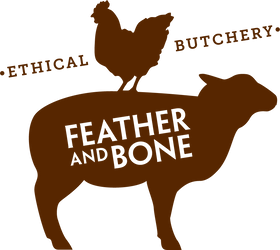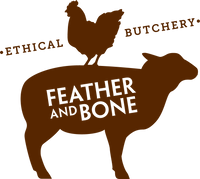Drought report: Extraordinary Pork, November 2018
As the extreme weather across the country continues, the air waves are choked with heartbreaking stories of farmers brought to their knees and struggling to cope. From the city, it's hard to get a clear perspective on the scale of hardship, the causes and the possible solutions. So last November, in response to media reports of farms in crisis due to the drought, we decided to seek some perspective from the farmers with whom we work. Before you read their reports, we'd encourage you to read our introduction - 'Grass roots response to drought'.
We’ve checked in with all of the farms over the last month and it’s sobering to note that little has changed since November 2018.
Extraordinary Pork
Farmers: Alex and Michael Hicks
Location: Eumungerie, NSW, 2822
Produce: Berkshire pigs
We started buying Extraordinary Pork pigs in February 2016
12 November 2018
When did you start to realise that this drought would probably be prolonged and very serious?
Mid way through 2017 it stopped raining and we had agistment cattle at the time (which means someone else owned the cattle and paid us each week to babysit them - and feed them our grass). We realised in June 2017 time was up, we were running out of grass and about to become very bad babysitters. So we rang the farmer and he picked up his cattle in a truck and took them away. The bummer is - the agistment gave us around $10,000 a year. So, in the last 18 months, we haven't had any agistment. When the cattle left, we knew things were going pear-shaped.
When did you start to take mitigating action against this drought?
We travelled overseas in 2010, (back in the days when we called each other boyfriend and girlfriend) and we heard on our travels about a famous Australian farm planner called Darren Doherty. People spoke in hushed tones about his work and expertise. We were in awe and hadn't even met him. We came home from our glamorous year overseas (living in a 1.5 man tent, which was definitely only a 1.0) and tracked down this mystery man in Bendigo. We bought our farm and then convinced Darren to come and design it. That was our best move. We’re totally prepared to take credit for how brilliant our design is. Ok, Darren's design. The design set up the water system for our farm to catch and store the rain.
What are the main actions you’ve taken and strategies you’ve followed?
We sell paddock to plate - so our farm business is very different to most. We don't sell pigs, we sell pork. We don't sell into sale yards and commodity markets, we can determine our end price. It's not a normal farm.
But we need all types of farmers in Australia. We can't all be paddock to plate farmers - someone has to make the wheat for your bread, the milk for your breakfast. All of these farmers - and they are the majority - are hurting.
A business like ours, it is very, very complex and much harder to run than a conventional business where you keep animals in sheds and load your land up with chemicals. But we can see the advantages of our regenerative approach over the long-term, specially in a hard-hitting drought like this.
Because of our farm design, we have water during this drought. We have 2 full dams of water, in a year with little rainfall, all because the dams having an amazing catchment design.
What are your priorities during this period and what are your objectives (e.g. maintain a core breeding stock, maintain ground cover etc.)
Bare dirt - is enemy No. 1! We try our best to keep grass everywhere, even if it is short, some grass is better than no grass. When the wind blows through, it lifts the dust off the road but not in the paddock where there is grass - we can see why it matters. It is super important to keep ground cover.
What are the main challenges you’ve faced during this drought? (e.g. retaining ground cover, dealing with kangaroos etc)
The challenge is, when you keep some grass on your property in a drought, you become the most popular local nightclub and all the kangaroos want to be part of the action. And it is a massive party with all the roos eating our grass every night. It means we save our grass for the better times and for the benefit of the land - but the kangaroos destroy our good work. So, we now have a plan, to build a wall to keep them out. Donald Trump style. It's called exclusion fence and we see it as our only option to really manage our farm and landscape sustainably. We have 350 acres and a few months ago we could count 200+ kangaroos here. Ridiculous numbers. They take away our ability to earn money in a drought and then they eat our grass to dirt - which is really bad for the soil.
Have you witnessed or learned anything particular over the last year that has changed or reinforced your thinking?
We realise how much we really love our pigs. They are good to us!! They continue to breed during a drought and selling paddock to plate has kept our business going.
How would you describe what you do and the contribution you make to Australian agriculture?
Our free-range pigs live like celebrities on the edge of the outback. We give them a mud bath to look after their skin and keep them looking young, we play waiter and offer them fresh food and water each day, we give them shade and then each week we say, "would you like a brand new paddock? A change of scenery perhaps?". And then we build them a new paddock and rotationally graze them. Our contribution to Australian agriculture will be our 350 acres changing from a tired farm with poor quality soil - to a healthy landscape with lots of grass, trees, worms and invisible things called microbes.
What do you think the ‘City' - consumers, retailers, policy makers - should be doing in times of drought?
The best thing a consumer can do right now - is buy from a farmer or buy meat from a butcher that supports a farmer directly. A business like Feather and Bone that pays their farmers properly and continues to buy regularly from farmers like us - allows us to keep going when times get tough. If people in the city buy more meat from ethical butchers - the butchers will ask their farmers for more meat. And that helps more farmers! How great is that? We feel so fortunate to be able to supply directly to Feather & Bone, to have that income every fortnight, it just helps keeps our business going!
12 March 2019
Things are starting to get get quite tight out here, even the regenerative farmers are really starting to feel it. We are looking down the barrel (unless we get significant rain soon) of no winter crop for the 3rd year running. This is just completely unheard of and has got a lot of people very nervous. The challenge of new territory is that people don't know what to expect, which on top of the emotional stress they are already feeling adds a lot of pressure.
If we don't get a good winter crop this year our record high feed prices will continue for the next 2 years.




Well written, and your last point is both salient and frightening as we close out March. Let’s hope for all farmers for some relief…and phone a farming mate.
Leave a comment